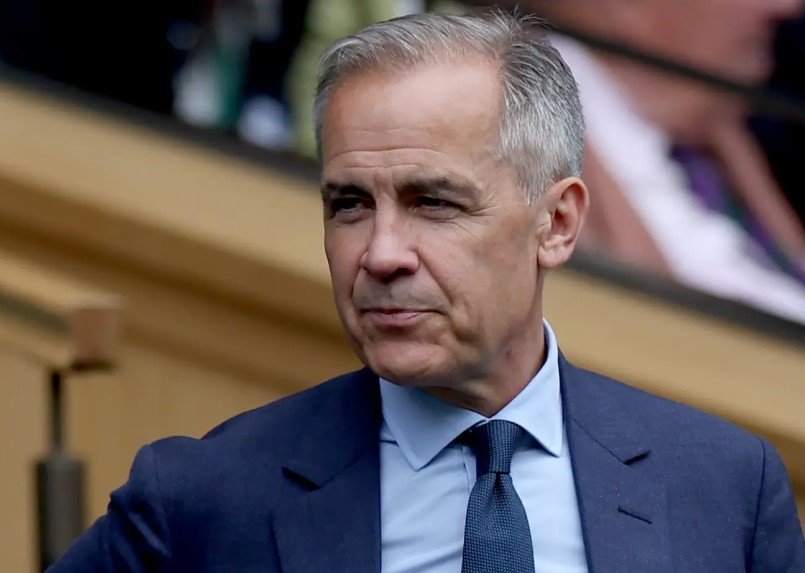India is closely watching Canada’s newly elected Prime Minister, Mark Carney, hoping for a shift in policy regarding Khalistani separatist activities within Canada. The request comes as both nations attempt to recover from a period of tense diplomatic relations under former Prime Minister Justin Trudeau.
India’s Concerns Over Khalistani Activities
New Delhi has been vocal about its dissatisfaction with Canada’s handling of Khalistani elements. The movement, which calls for an independent Sikh state in India’s Punjab region, has seen strong support from segments of the Canadian Sikh diaspora. India argues that some groups linked to this cause have engaged in activities undermining its national security.
The Indian government has long pressed Canada to take stricter measures against these factions. Previous requests, however, were met with pushback from Ottawa, citing free speech protections and community rights. India sees Carney’s leadership as a chance to revisit the issue with fresh eyes.

The Trudeau Years: A Diplomatic Standoff
Relations between India and Canada deteriorated significantly under Justin Trudeau’s leadership. The most serious flashpoint came in 2023 after the assassination of Hardeep Singh Nijjar, a pro-Khalistan activist in British Columbia. Trudeau’s public accusation that Indian agents were involved led to an immediate diplomatic fallout.
- Both countries expelled diplomats in retaliation.
- Canada accused Indian officials of foreign interference.
- India denied the allegations, calling them politically motivated.
The incident cast a shadow over India-Canada ties, affecting trade talks and broader diplomatic cooperation. By the time Trudeau left office, relations were at one of their lowest points in decades.
Mark Carney’s Stance on India-Canada Relations
Mark Carney, a former central banker with no prior political experience, has promised a reset in Canada’s international approach. Before his election, he stressed the need for Canada to diversify trade and strengthen ties with strategic allies—including India.
Carney has acknowledged the potential for improved economic and diplomatic cooperation between the two nations. “There are opportunities to rebuild the relationship with India,” he said in a pre-election statement. He also emphasized the importance of shared values in shaping economic partnerships.
His background in finance suggests a pragmatic approach, prioritizing economic interests over ideological battles. However, his handling of the Khalistan issue will be a key test of his foreign policy strategy.
Sikh Diaspora and Political Sensitivities
Canada is home to one of the largest Sikh populations outside India, with significant political influence, particularly in British Columbia and Ontario. Many Canadian politicians, including members of Carney’s own party, have historically courted Sikh votes, making any action on the Khalistan issue a politically sensitive move.
The challenge for Carney will be finding a middle ground—addressing India’s concerns while maintaining domestic political stability. Analysts believe he may adopt a quieter diplomatic approach rather than Trudeau’s more public posturing on such issues.
Global Reactions and the Five Eyes Alliance
The India-Canada rift has drawn international attention, particularly from the Five Eyes intelligence alliance, which includes the US, UK, Australia, and New Zealand. The group has expressed concerns over allegations of foreign interference and the security risks posed by separatist movements operating from Western nations.
UK Prime Minister Keir Starmer has encouraged dialogue between India and Canada, highlighting the need to maintain transparency and legal cooperation. Meanwhile, US officials have taken a more cautious stance, refraining from taking sides while urging both nations to resolve their differences diplomatically.
What Comes Next?
Mark Carney’s foreign policy agenda is still taking shape, but how he handles the Khalistan issue will be a major factor in determining the future of India-Canada relations. A few potential scenarios could unfold:
- If Carney takes concrete action against Khalistani groups, it could pave the way for trade negotiations and stronger diplomatic ties with India.
- If he maintains Trudeau’s hands-off approach, tensions could persist, limiting cooperation on global forums.
- If a middle ground is found—where security concerns are addressed while upholding political freedoms—both nations might see a gradual thaw in relations.
For now, India is waiting for more than just words. Actions will speak louder, and Carney’s decisions in the coming months will shape the trajectory of this delicate bilateral relationship.
